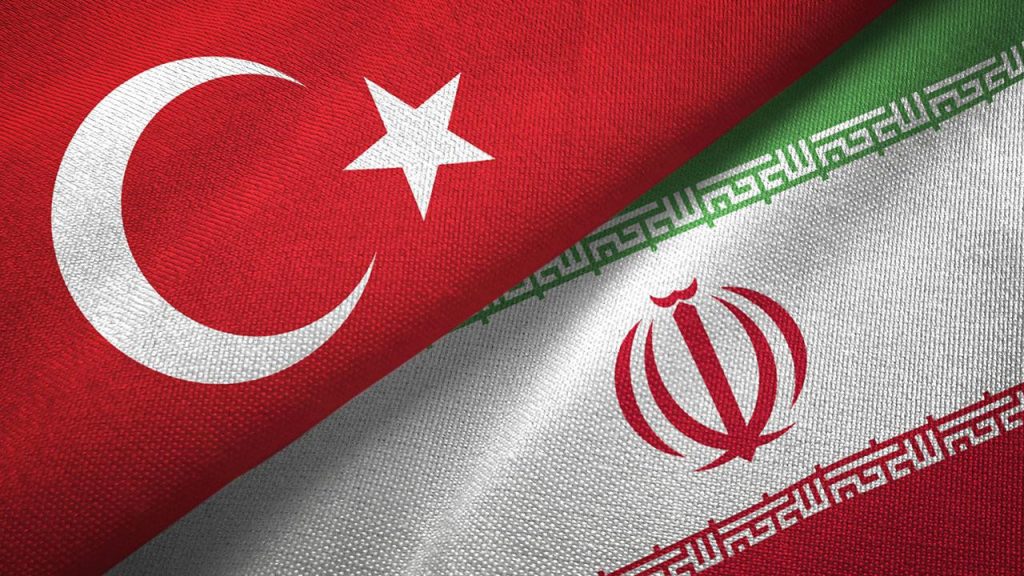Tensions have escalated between Iran and Turkey following remarks made by Turkish Foreign Minister Hakan Fidan, who criticized Iran’s foreign policy regarding Syria. This diplomatic spat has led both nations to summon each other’s envoys, reflecting deep concerns over regional stability and mutual relations. The situation highlights the sensitive dynamics between the two neighboring countries, as they navigate their interests in the tumultuous Middle East.
| Article Subheadings |
|---|
| 1) Turkish Foreign Minister’s Warning |
| 2) Iran’s Response and Diplomatic Reactions |
| 3) Context of Regional Relations |
| 4) Internal Politics Influencing Foreign Relations |
| 5) Future Implications for Iran-Turkey Relations |
Turkish Foreign Minister’s Warning
In a recent interview with a prominent media outlet, Turkish Foreign Minister Hakan Fidan issued a stark warning to Iran regarding its role in Syria. He articulated that Iran’s foreign policy, which he described as heavily reliant on militias, poses a “dangerous” threat not just to Turkey but to the broader regional stability as well. Fidan suggested that Iran’s influence through these groups could trigger retaliation from other nations that might support counter-groups within Iran itself. This statement has been interpreted as a direct response to growing Iranian involvement in Syria, which Turkey regards as a threat to its own territorial integrity and national security. The timing of this warning is crucial, as Turkey has been increasingly vocal about its concerns over Iranian activities in the region during ongoing conflicts.
Iran’s Response and Diplomatic Reactions
Following Fidan’s comments, Iran’s foreign ministry swiftly summoned Turkey’s ambassador, Hicabi Kırlangıç, to express its discontent. In this diplomatic meeting, Iranian officials emphasized the necessity for both nations to avoid provocative rhetoric that may further strain their longstanding relationship. Mahmoud Heydari, the Director General for the Mediterranean and Eastern Europe, conveyed that maintaining a stable bilateral relationship requires both sides to refrain from making unconstructive statements. Iran’s response was not merely passive; it actively sought to communicate its perspective directly, indicating the importance it places on diplomatic dialogue amidst rising tensions.
Context of Regional Relations
The backdrop of this diplomatic fallout is critical in understanding the broader implications for Iran-Turkey relations. Both countries share a history marked by collaboration and contention, influenced by their respective ambitions in the Middle East. In recent years, Iran has increased its military and political presence in Syria, predominantly through supporting various militia groups that align with its interests. This has raised alarms in Turkey, which views the Iranian actions as attempts to extend its influence in a region where Turkey also holds significant stakes. The conflicting interests, particularly around conflicts such as the Syrian civil war, serve as a flashpoint in their diplomatic relations and have prompted officials from both sides to engage in a balancing act of asserting sovereignty while attempting to maintain regional cohesion.
Internal Politics Influencing Foreign Relations
Both Iran and Turkey are currently navigating complex internal political landscapes that could impact their foreign relations. In Turkey, the government under President Recep Tayyip Erdoğan has increasingly adopted a more assertive foreign policy, reflecting both domestic pressures and regional ambitions. This internal drive for political stability and territorial security has led to a more confrontational posture regarding Iran. Conversely, in Iran, internal criticisms directed towards Turkey have been on the rise, with officials discontented about what they perceive as hostile remarks coming from Ankara. Iranian spokesperson Esmaeil Baghaei highlighted this sentiment, suggesting that such comments are “unconstructive” and need reconsideration. The intertwining of domestic and foreign political narratives complicates the diplomatic ties between the two nations, with both sides wary of each other’s motives.
Future Implications for Iran-Turkey Relations
Looking ahead, the growing tension between Iran and Turkey presents several potential implications for their bilateral relations and regional stability. As both nations act in response to perceived threats, there is a risk of escalating rhetoric leading to more severe diplomatic consequences. Analysts suggest that a failure to address these tensions could undermine not only bilateral cooperation but also destabilize efforts for regional peace, particularly in countries like Syria and Iraq. However, there is also a possibility for reconciliation, should both sides prioritize dialogue over confrontation. The ability of Iran and Turkey to navigate these choppy waters will be crucial in determining the future of their relationship and the broader geopolitical landscape in the Middle East.
| No. | Key Points |
|---|---|
| 1 | Turkish Foreign Minister Hakan Fidan warned Iran about its influence in Syria. |
| 2 | Iran’s foreign ministry summoned Turkey’s ambassador in response. |
| 3 | Iran and Turkey have conflicting interests in the Middle East, particularly regarding Syria. |
| 4 | Internal politics in both countries influence their foreign relations and diplomatic strategies. |
| 5 | Future relations will depend on their ability to engage in dialogue rather than escalation. |
Summary
The diplomatic tensions between Iran and Turkey underscore the precarious nature of relations in the Middle East, particularly as both nations navigate their respective regional ambitions. The warnings issued by Turkey’s foreign minister reflect deep-seated concerns about Iranian policies, while Iran’s quick summoning of Turkey’s ambassador signifies a commitment to addressing these issues head-on. The situation calls for constructive dialogue as the future of their bilateral relationship remains uncertain amidst internal political pressures and external challenges.
Frequently Asked Questions
Question: What prompted the latest diplomatic tensions between Iran and Turkey?
The tensions arose following remarks made by Turkish Foreign Minister Hakan Fidan criticizing Iran’s foreign policy in Syria, which he deemed a threat to regional stability.
Question: How did Iran respond to Turkey’s remarks?
Iran’s foreign ministry responded by summoning Turkey’s ambassador to express dissatisfaction and emphasize the need for constructive diplomacy.
Question: What are the broader implications of the Iran-Turkey relationship?
The relationship between Iran and Turkey has implications for regional stability, particularly concerning conflicts in Syria and Iraq, as both nations navigate competing interests.


